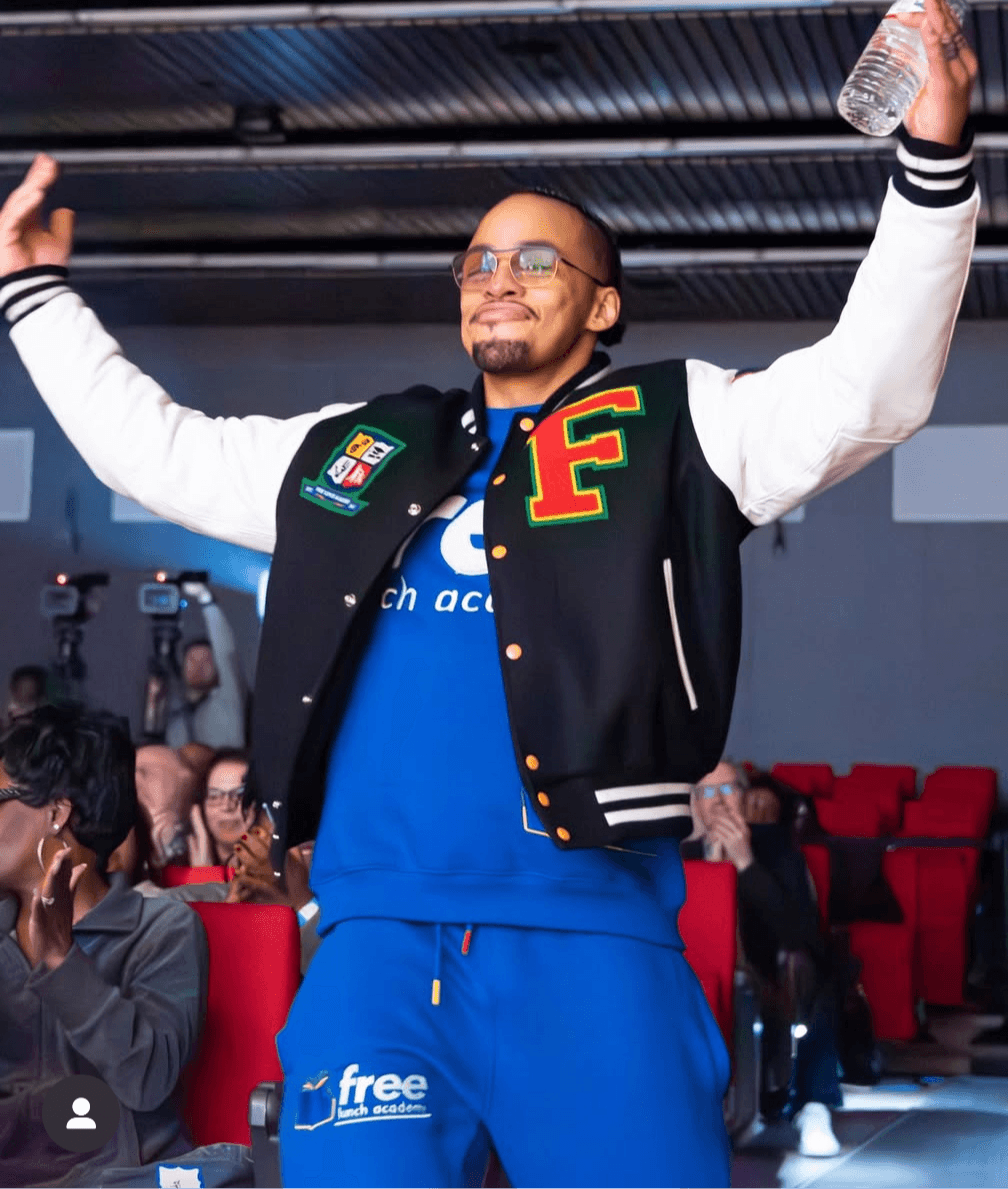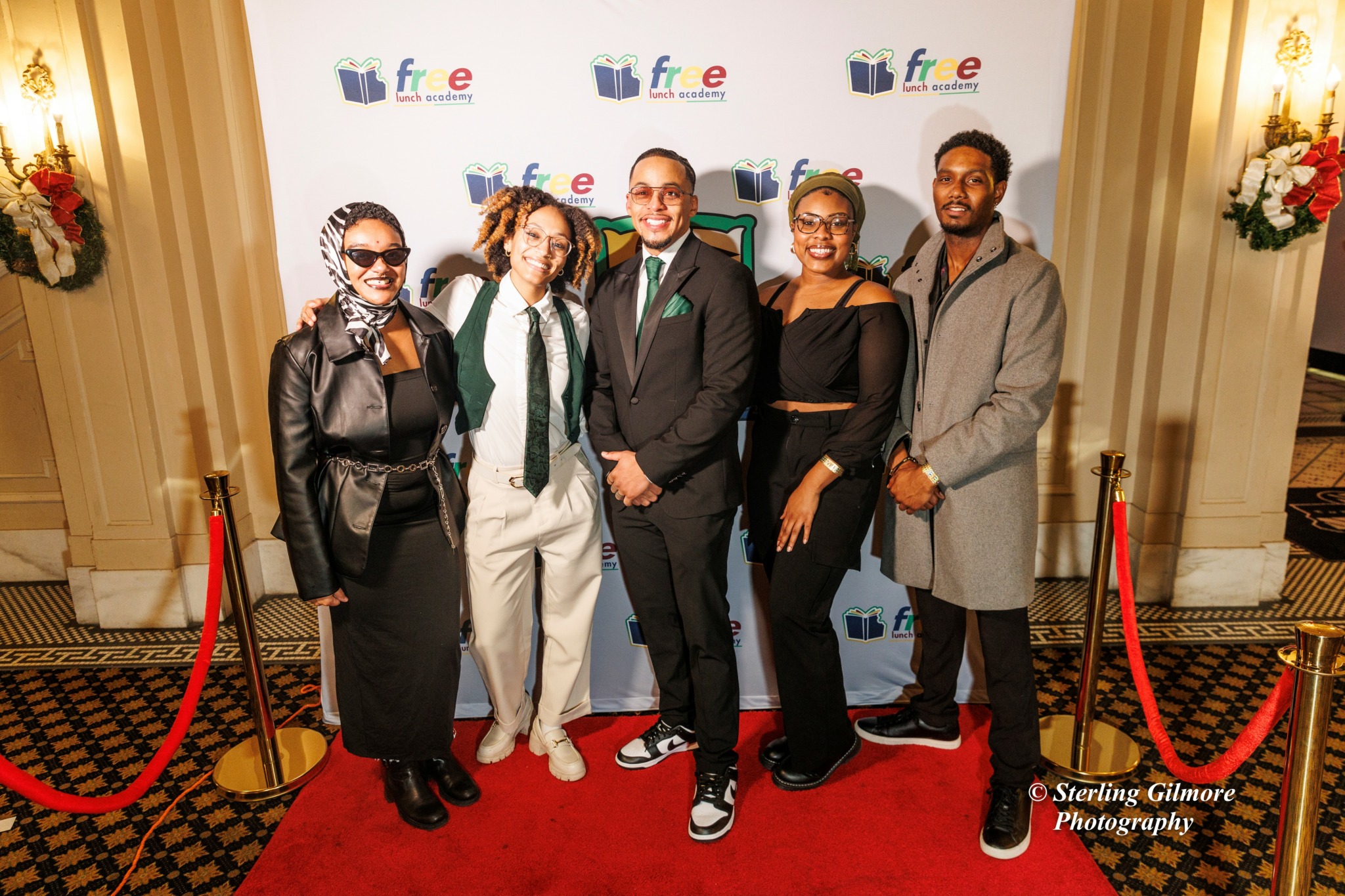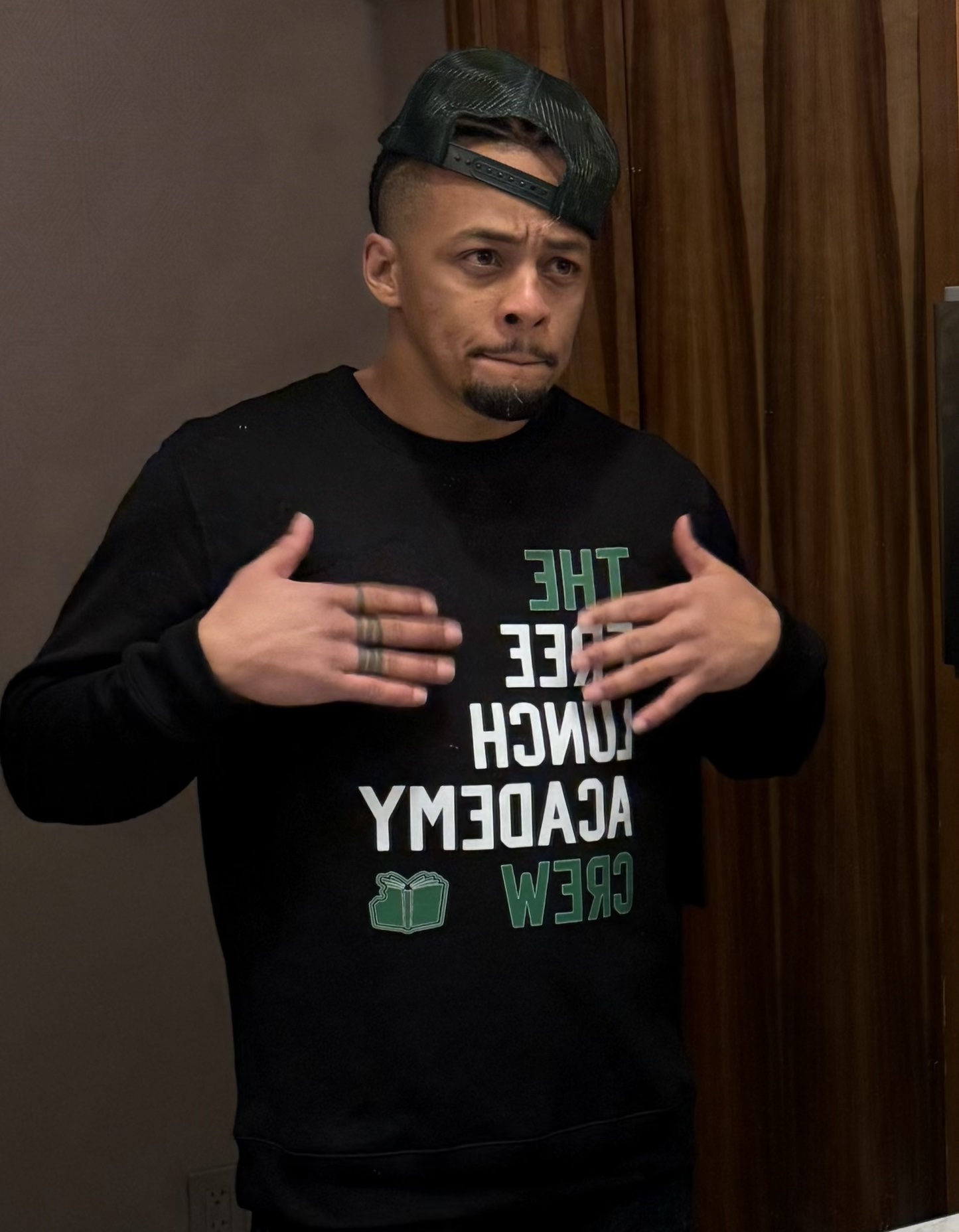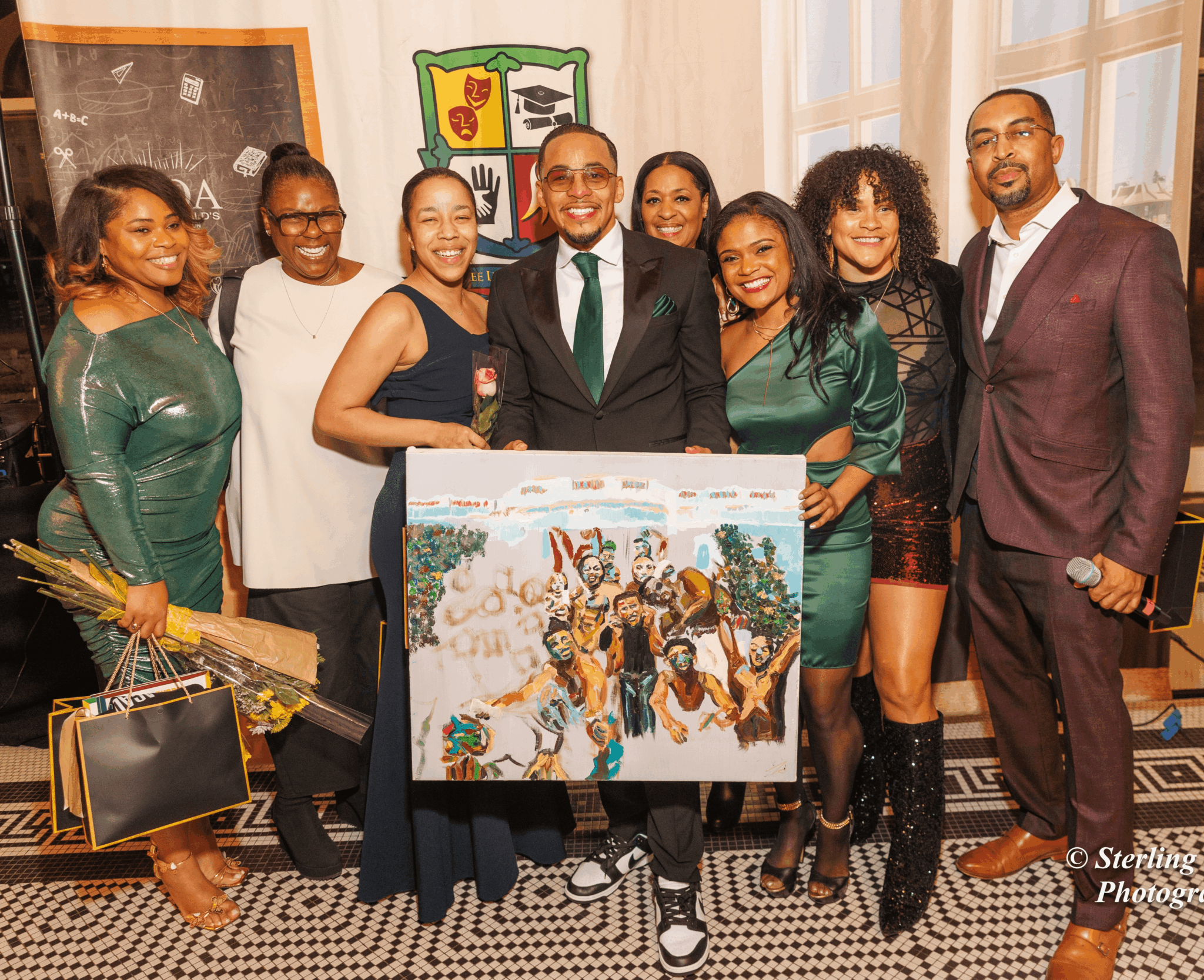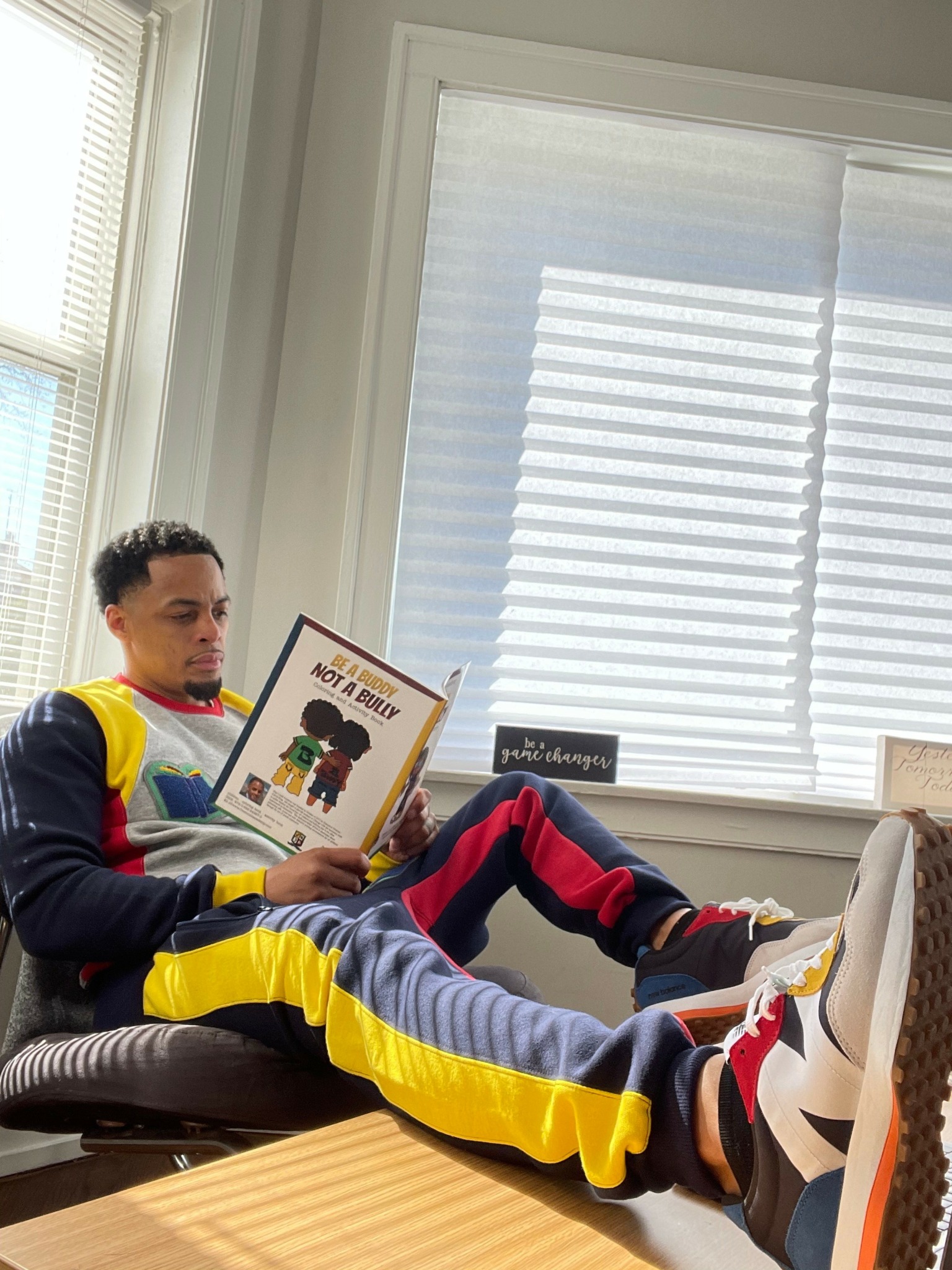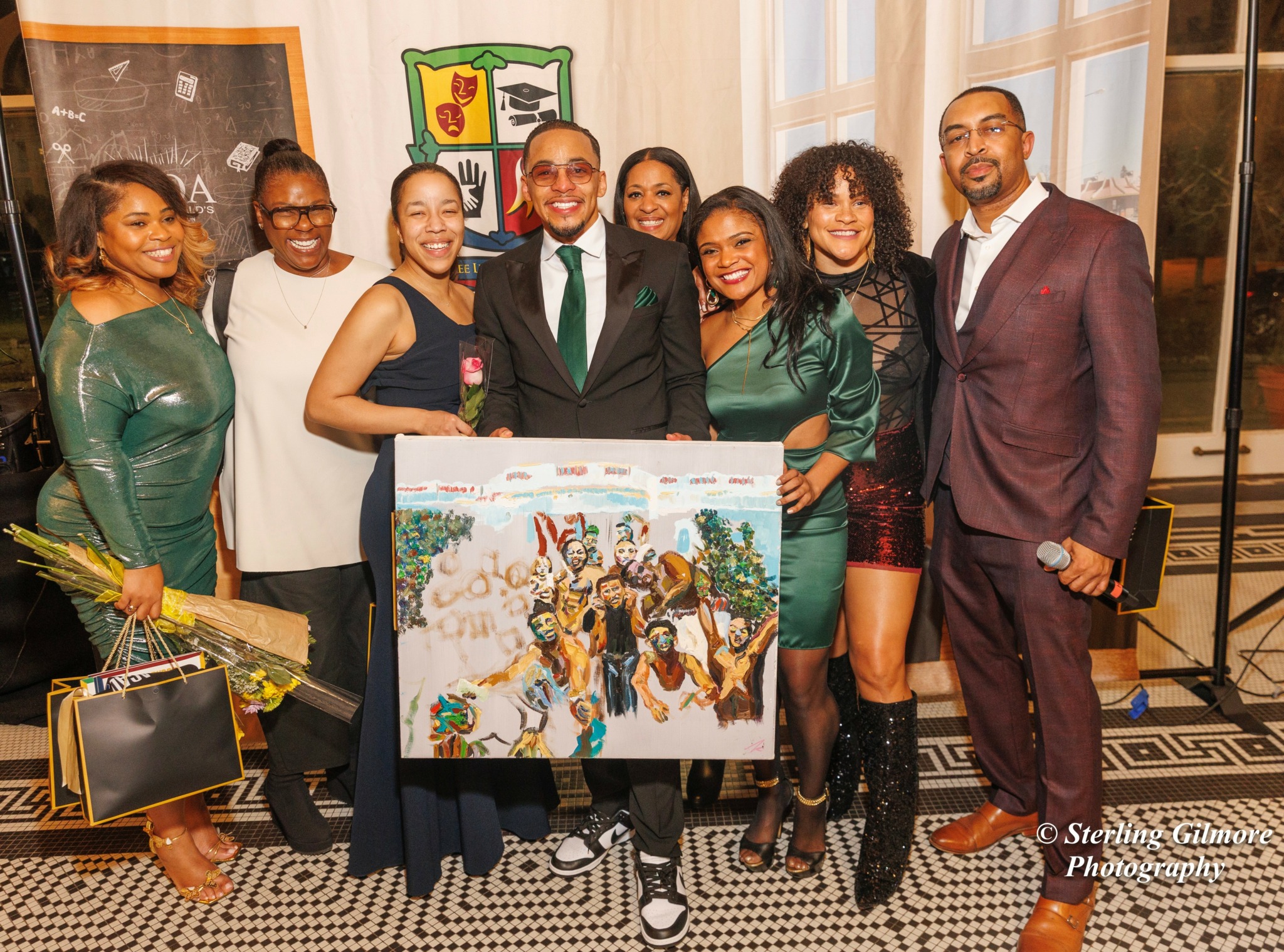We recently connected with Calvin King and have shared our conversation below.
Hi Calvin, thanks for joining us today. Let’s start with the story of your mission. What should we know?
When you break it down backwards; Free Lunch Academy, is a school of thought (Academy), serving food for thought (Lunch), firmly rooted in educational entertainment (F.R.E.E.). Meaning, everything we do within the social emotional artistic learning space is done from an “edutaining” perspective. From our touring stage plays and workshops, to our artist residencies and creative youth employment programming, to our public facing volunteer led events and much more, FLA is uniquely designed to cultivate character in classrooms, careers and throughout communities. Similar to that of the Free Breakfast Program started by the Black Panther Party in Oakland, CA., in 1969, which served as the model for the free lunch program that most public school students nationwide benefit from today, Free Lunch Academy was also founded for us, by us, with the potential to positively impact the lives of youth and young adults nationwide at least and worldwide at best.
Calvin, love having you share your insights with us. Before we ask you more questions, maybe you can take a moment to introduce yourself to our readers who might have missed our earlier conversations?
I’m Calvin King—father, founder, and community-first creative. I’m the Executive Director of Free Lunch Academy, but more than that, I’m a builder of bridges between youth, education, art, and emotional wellness. Everything I do is grounded in the belief that when young people are given safe spaces to express themselves, understand their emotions, and practice real-world problem-solving, they thrive—not just in school, but in life.
I created Free Lunch Academy to fill a gap I saw in our schools and communities. There were too many kids struggling with behavior, relationships, and self-confidence—not because they lacked potential, but because they hadn’t been given the emotional tools to manage what life was throwing at them. And let’s be honest: traditional teaching methods weren’t reaching them.
That’s where we flipped the script.
Free Lunch Academy operates at the intersection of social-emotional learning (SEL), live performance, creative workshops, and youth-centered programming. Our whole model is built on the concept of edutainment—educating through entertainment. Whether it’s a touring stage play about bullying prevention, an interactive classroom workshop on conflict resolution, or a creative youth employment initiative, our programs are designed to engage young minds while helping them grow emotionally and socially.
What makes us different is how we do it. We don’t just drop in with a message—we build relationships. We connect with young people in a way that feels honest and culturally relevant. We use humor, music, theatre, and storytelling to make serious topics like trauma, peer pressure, and emotional regulation approachable and actionable. And our work isn’t limited to one environment—we serve students in schools, community centers, juvenile justice spaces, and beyond.
I’m incredibly proud that many of our current team members were once students in our programs. They went from sitting in the audience to leading workshops, mentoring youth, and helping us shape our curriculum. That kind of growth—from participant to practitioner—is exactly what Free Lunch Academy is all about. We don’t just teach SEL—we embody it.
We exist to cultivate character—in classrooms, in careers, and throughout communities. And as we continue to scale from a grassroots organization into a multi-tiered institution, we’re holding firm to that mission. Our goal isn’t just expansion for expansion’s sake—it’s deeper impact. We want to reach more schools, employ more youth, and partner with more organizations to bring meaningful, transformative SEL experiences to the next generation.
At the end of the day, I want people to know that this work is not performative—it’s personal. I’m in it because I believe in our youth. I believe in their power. And I believe that with the right support systems in place, they can and will lead us all toward a brighter, more emotionally intelligent future.
Free Lunch Academy is that support system. We’re here to build, uplift, and evolve—together.
Any advice for managing a team?
As the founder and executive director of Free Lunch Academy, I’ve learned that managing a team—especially in a mission-driven, youth-centered space—isn’t just about assigning tasks or hitting goals. It’s about creating a culture where people feel seen, valued, and empowered to lead by example. Because the truth is, if we expect to spark real change in the lives of the youth and young adults we serve, we have to model those changes ourselves—consistently and intentionally.
For me, the foundation of effective team management starts with alignment. Everyone on the team—from teaching artists to admin staff—has to understand not just what we do, but why we do it. When folks feel connected to the mission and have clarity around their role in the bigger picture, morale naturally increases. People want to show up and contribute when they know their impact matters.
But beyond mission alignment, it’s about how we engage. At Free Lunch Academy, we put the same energy into developing our team as we do into developing our students. That means acknowledging and rewarding positive behaviors—publicly and often. Whether it’s showing up early, stepping up for a teammate, or going above and beyond with a student, we make sure to celebrate those wins. Recognition builds momentum.
At the same time, we also believe in compassionate accountability. When someone is falling short or off track, we don’t come at them with shame—we approach them with curiosity. We ask questions, we redirect, and we coach. Because again, it’s not just about discipline—it’s about growth. We can’t teach youth to regulate their emotions, resolve conflict, or take responsibility if we don’t demonstrate those exact same skills within our team.
One thing that sets our approach apart is the way we incorporate participant voice—and I apply the same principle to staff management. Just like we invite students to weigh in on how our behavior systems are designed, we also invite our team members into the process. That includes offering feedback, suggesting improvements, and co-creating solutions. When people feel like they have a voice in how the system works, they’re more likely to buy in and uphold it.
Ultimately, high morale comes from fairness, consistency, and trust. People will give their all when they feel like their contributions are respected, their growth is supported, and their leadership is honored. That’s the type of culture we build at Free Lunch Academy—because that’s the kind of culture we want our youth to experience and replicate.
My advice? Lead how you want your team to lead. Model what you expect to see. Celebrate progress. Offer grace. Be consistent. And always, always stay grounded in purpose.
Let’s talk about resilience next – do you have a story you can share with us?
One story that stands out in my journey—and really speaks to resilience—happened during one of the lowest financial points in Free Lunch Academy’s history. We had just wrapped a powerful season of programming: packed school assemblies, youth employment workshops, powerful performances that were changing lives in real time. The energy was high, the impact was clear. But behind the scenes? The money had dried up. A major grant we were counting on didn’t come through. A key funder shifted priorities. And suddenly, we were staring down a five-figure deficit with no backup plan.
I remember sitting at my dining room table—papers everywhere, laptop open, phone silent—and just feeling the weight of it all. Not just the money, but the people who believed in us. The youth we were responsible for. The artists and team members who had poured their hearts into the work. I started questioning everything: Was this sustainable? Was I in over my head? Should I step back before this whole thing falls apart?
But then I did what I always tell our students to do in moments of pressure: breathe, reflect, and remember your “why.” I thought about the kids who had come up to me after a performance and said, “That story felt like my life.” I thought about the parent who told me their son finally opened up about his emotions after one of our workshops. I thought about my own children—and the world I want them to inherit.
So instead of folding, I doubled down. I made the calls nobody wants to make. I restructured the budget, cut back where we could, leaned into community support, and started pitching FLA like never before. And slowly, doors started opening. Some of those same funders came back around. New supporters emerged. We landed grants we hadn’t qualified for before. And through it all, the work never stopped. We didn’t cancel a single program.
That season taught me something powerful: resilience isn’t about avoiding the struggle—it’s about showing up through it. It’s about finding solutions in the silence, leading with transparency, and being willing to rebuild when things fall apart.
That moment reminded me that this isn’t just a job—it’s a calling. And when you’re rooted in purpose, resilience becomes second nature. You learn how to pivot. You lean on your team. You make hard choices. And you keep going.
Because in the end, if I want our students to believe that their story doesn’t end at their lowest moment, I have to live that truth myself. That’s resilience. And that’s why I’m still here.
Contact Info:
- Website: www.freelunchacademy.com
- Instagram: https://www.instagram.com/freelunchacademy/
- Facebook: https://www.facebook.com/FreeLunchAcademy
- Linkedin: https://www.linkedin.com/in/calvin-king-b58aa69/
- Twitter: https://x.com/freelunchchi
- Youtube: https://www.youtube.com/@freelunchacademy
